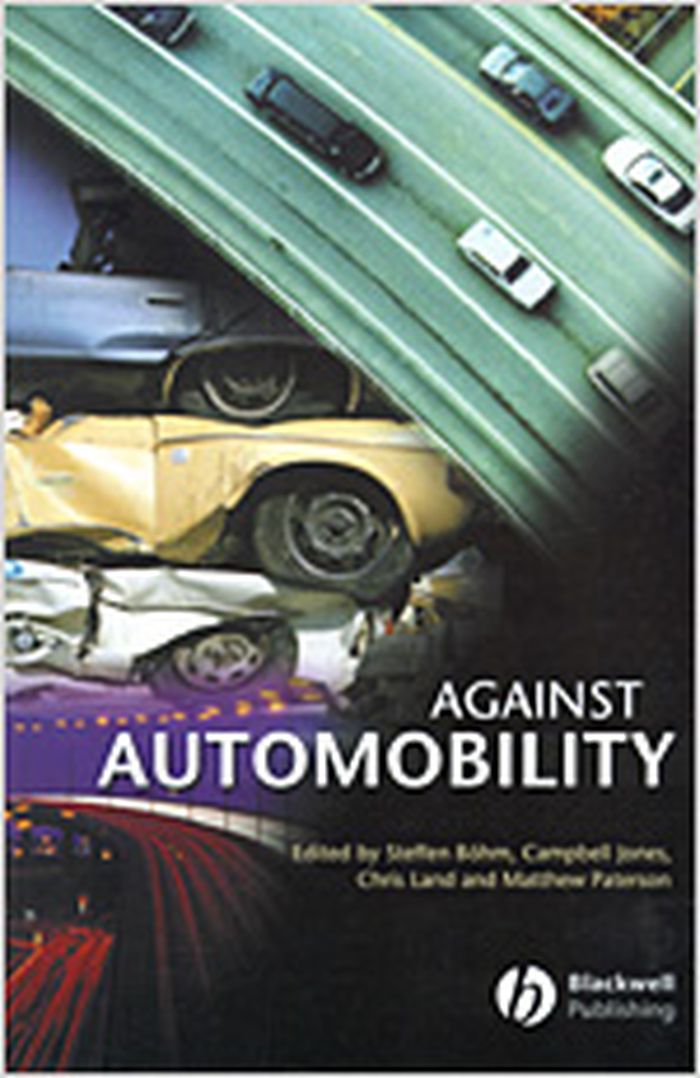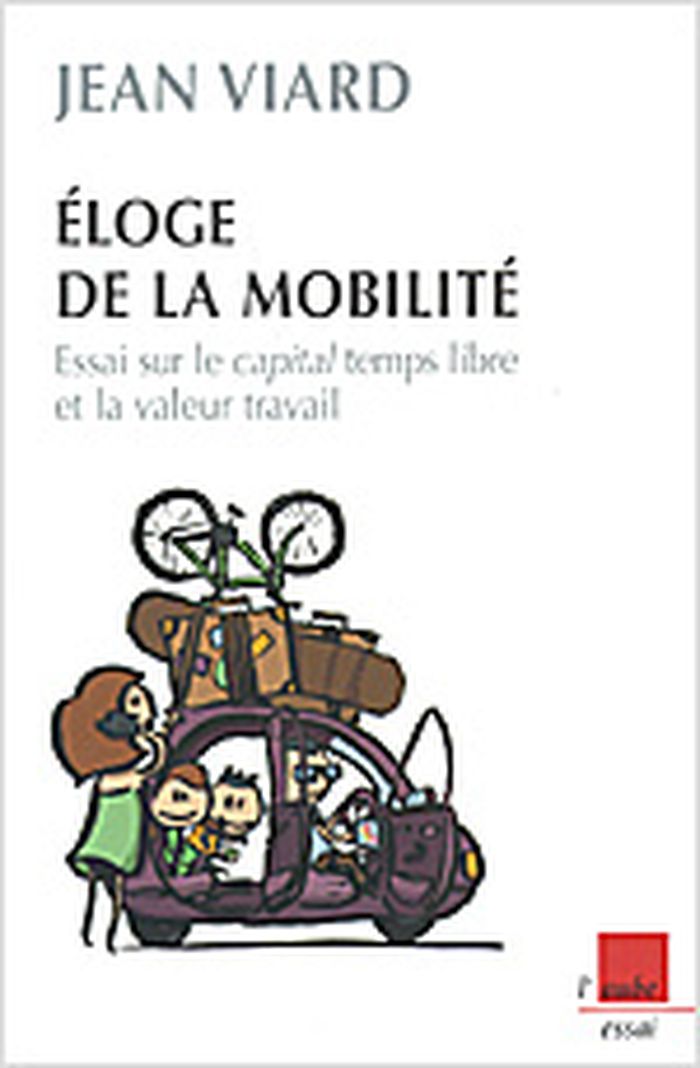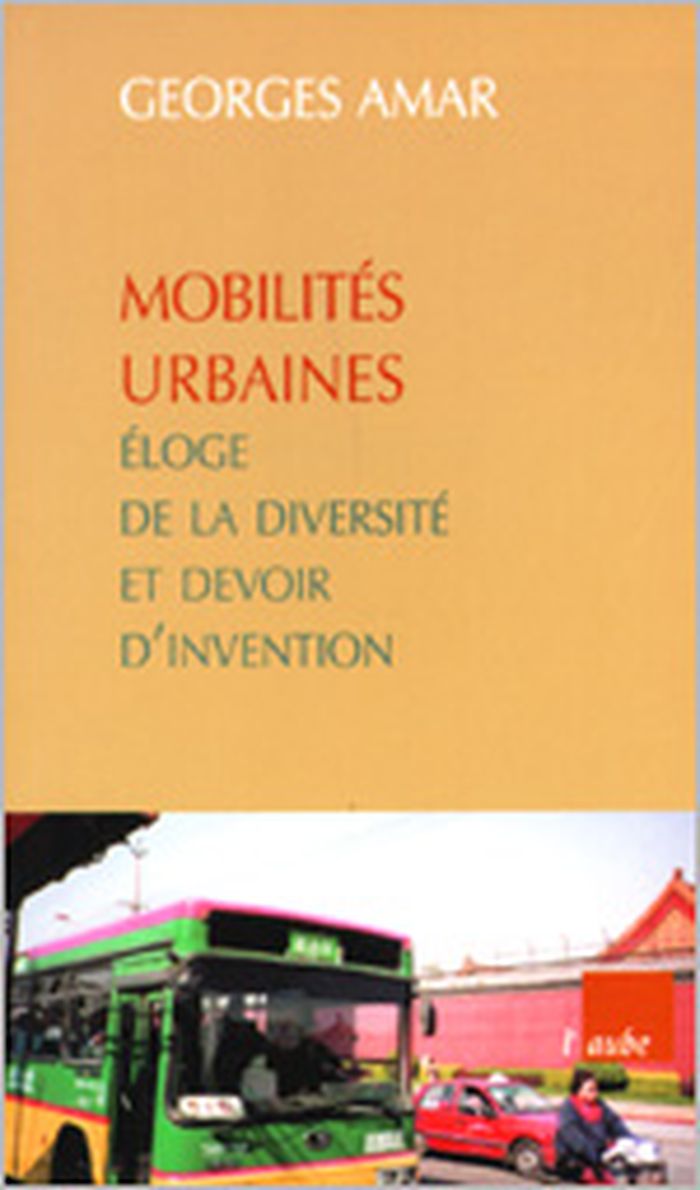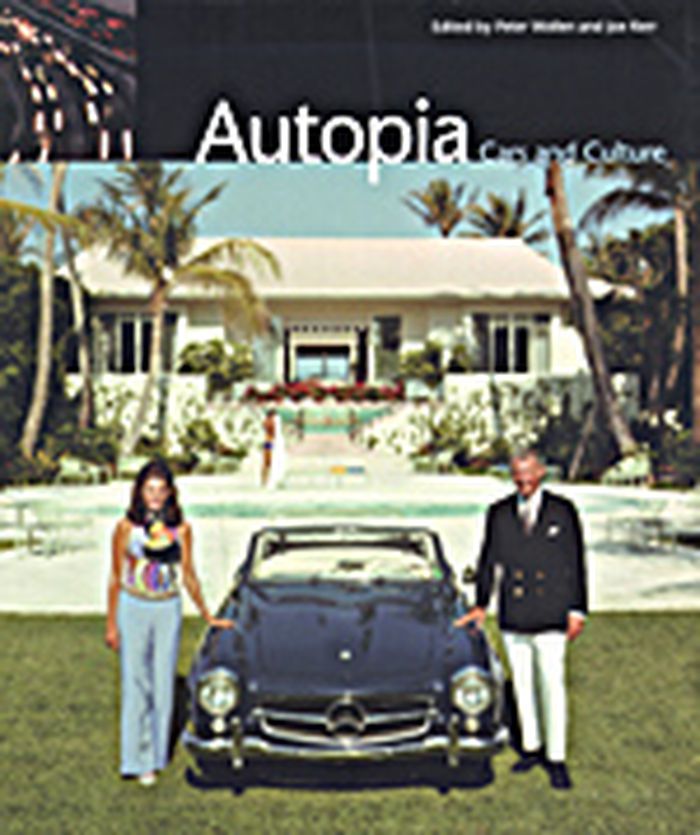livres
$46.95
(disponible sur commande)
Résumé:
Les frontières font débat en Europe : frontières extérieures de l'Union, frontières entre pays, parfois même frontières à l'intérieur de certains pays. Aussi, les discours sur les frontières abondent, pour en décrier l'archaïsme général ou en demander de plus efficaces, ou sur les frontières pertinentes à instaurer ; voire sur les liens entre travail de couture réalisé(...)
septembre 2006, La Tour d'Aigues
Après les frontières, avec la frontière : nouvelles dynamiques transfrontalières en Europe
Actions:
Prix:
$46.95
(disponible sur commande)
Résumé:
Les frontières font débat en Europe : frontières extérieures de l'Union, frontières entre pays, parfois même frontières à l'intérieur de certains pays. Aussi, les discours sur les frontières abondent, pour en décrier l'archaïsme général ou en demander de plus efficaces, ou sur les frontières pertinentes à instaurer ; voire sur les liens entre travail de couture réalisé par les coopérations transfrontalières et besoin de barrières à renforcer sur les bordures externes... Pour les auteurs de ce livre, plutôt que de vivre l'après des frontières politiques, nous sommes face à un gigantesque chantier territorial. Des dynamiques fines et complexes se mettent en place à différents niveaux, retravaillant les échelles territoriales, bousculant des espaces frontaliers, questionnant les identités locales et nationales. Cet ouvrage examine ces processus de recomposition frontalière. Les diverses contributions analysent la morphologie, les acteurs de ces espaces, les définitions identitaires ainsi que les mobilités qui les fondent. Elles révèlent que les frontières internes de l'Europe sont aujourd'hui des laboratoires où s'inventent de nouvelles territorialités. Territorialités hybrides, mobiles et complexes, où se redéfinissent les fondements de l'unité, les identités et les différences. Des territorialités européennes actuelles qui font - aussi et nécessairement - avec les frontières.
livres
septembre 2006, La Tour d'Aigues
Against automobility
$40.95
(disponible sur commande)
Résumé:
Despite its promise of freedom and autonomy, the ubiquity of the automobile has influenced unforeseen ecological, social, and political change. In "Against automobility", a panel of distinguished scholars take a critical look at the contradiction of the automobile : a critical account of the impact of the car on society, which is both liberated by and reliant upon(...)
octobre 2006, Malden / Oxford / Carlton
Against automobility
Actions:
Prix:
$40.95
(disponible sur commande)
Résumé:
Despite its promise of freedom and autonomy, the ubiquity of the automobile has influenced unforeseen ecological, social, and political change. In "Against automobility", a panel of distinguished scholars take a critical look at the contradiction of the automobile : a critical account of the impact of the car on society, which is both liberated by and reliant upon motor vehicles, written by a panel of distinguished scholars from varying disciplines in the humanities and social sciences, examines automobility's effect on environmental, social, and political issues, will be of interest to those whose research focuses on geography, politics, consumption and cultural studies, critical theory, and the sociology of objects and everyday life.
$34.95
(disponible sur commande)
Résumé:
Pour Jean Viard, l'initiation populaire et inégalitaire aux temps libres et son corollaire, la mobilité de masse, ont modifié, bien au-delà de ces faits quantifiables, les façons de vivre. Pour lui, les gestes, les lieux, les normes et les valeurs construites pour occuper les temps libres sont en train de devenir les bases de la culture collective, bousculant les liens(...)
août 2006
Éloge de la mobilité : essai sur le capital temps libre et la valeur du travail
Actions:
Prix:
$34.95
(disponible sur commande)
Résumé:
Pour Jean Viard, l'initiation populaire et inégalitaire aux temps libres et son corollaire, la mobilité de masse, ont modifié, bien au-delà de ces faits quantifiables, les façons de vivre. Pour lui, les gestes, les lieux, les normes et les valeurs construites pour occuper les temps libres sont en train de devenir les bases de la culture collective, bousculant les liens sociaux et politiques, remettant en cause la place centrale du travail, favorisant l’étalement urbain. Il s’agit d’une culture individuelle et mobile où chacun joue sans cesse avec l’absence et l’abstention : zapping, divorce, déménagement, voyage, portable, internet… forment un tout, avec une privatisation des liens sociaux, des exclusions féroces, une crise du collectif et, malgré tout, certaines solidarités ainsi que d’extraordinaires libertés quand on accède au droit de choisir ses mobilités.
$29.99
(disponible sur commande)
Résumé:
In this book the cultural critic Marita Sturken argues that over the past two decades, Americans have responded to national trauma through consumerism, kitsch sentiment, and tourist practices in ways that reveal a tenacious investment in the idea of America’s innocence. Sturken investigates the consumerism that followed from the September 11th attacks; the contentious,(...)
Tourists of History: memory, kitsch, and consumerism from Oklahoma City to Ground Zero
Actions:
Prix:
$29.99
(disponible sur commande)
Résumé:
In this book the cultural critic Marita Sturken argues that over the past two decades, Americans have responded to national trauma through consumerism, kitsch sentiment, and tourist practices in ways that reveal a tenacious investment in the idea of America’s innocence. Sturken investigates the consumerism that followed from the September 11th attacks; the contentious, ongoing debates about memorials and celebrity-architect designed buildings at Ground Zero; and two outcomes of the bombing of the Alfred P. Murrah Federal Building in Oklahoma City: the Oklahoma City National Memorial and the execution of Timothy McVeigh. Sturken contends that a consumer culture of comfort objects such as World Trade Center snow globes, FDNY teddy bears, and Oklahoma City Memorial t-shirts and branded water, as well as reenactments of traumatic events in memorial and architectural designs, enables a national tendency to see U.S. culture as distant from both history and world politics. A kitsch comfort culture contributes to a “tourist” relationship to history: Americans can feel good about visiting and buying souvenirs at sites of national mourning without having to engage with the economic, social, and political causes of the violent events. While arguing for the importance of remembering tragic losses of life, Sturken is urging attention to a dangerous confluence—of memory, tourism, consumerism, paranoia, security, and kitsch—that promulgates fear to sell safety, offers prepackaged emotion at the expense of critical thought, contains alternative politics, and facilitates public acquiescence in the federal government’s repressive measures at home and its aggressive political and military policies abroad.
The Architecture of Parking
$57.00
(disponible sur commande)
Résumé:
Since the invention of the car, the buildings that house them have been a source of inspiration and consternation to architects. Although many dreary car parks and garages do exist, the challenge of efficiently housing a maximum number of cars in a well-designed space has attracted a stellar array of contemporary architects. From the classic circular Marina City tower in(...)
The Architecture of Parking
Actions:
Prix:
$57.00
(disponible sur commande)
Résumé:
Since the invention of the car, the buildings that house them have been a source of inspiration and consternation to architects. Although many dreary car parks and garages do exist, the challenge of efficiently housing a maximum number of cars in a well-designed space has attracted a stellar array of contemporary architects. From the classic circular Marina City tower in Chicago to the Parcheggio Nuovo Salario under construction in Rome, from Frank Gehry to Rem Koolhaas to Zaha Hadid, the form and function of the parking garage have been hugely influential not only on contemporary architects but also on popular culture. This book is at once a survey of the finest examples of parking garages and a presentation of exciting and innovative design. An introduction covers the history and architectural significance of these buildings and their relevance today, and is followed by chapters that define the most influential aspects of parking design: elevations, materials, the use of light, and innovation and experimentation. Featuring detailed plans plus case studies of iconic buildings, this is an indispensable and inspirational resource for professional architects, engineers, urban planners, and developers. 300 illustrations and photographs, 150 in color.
$34.95
(disponible sur commande)
Résumé:
Comment penser et organiser les transports dans des villes où les gens bougent de plus en plus ? Georges Amar est allé voir comment, ailleurs, on pensait les mobilités urbaines et comment on explorait de nouvelles démarches. Les analyses qu’il tire de ses voyages nous montrent que l’innovation tient largement à la capacité non pas de transposer de “bonnes pratiques” mais(...)
Mobilités urbaines : éloge de la diversité et devoir d'invention
Actions:
Prix:
$34.95
(disponible sur commande)
Résumé:
Comment penser et organiser les transports dans des villes où les gens bougent de plus en plus ? Georges Amar est allé voir comment, ailleurs, on pensait les mobilités urbaines et comment on explorait de nouvelles démarches. Les analyses qu’il tire de ses voyages nous montrent que l’innovation tient largement à la capacité non pas de transposer de “bonnes pratiques” mais de s’en inspirer dans des démarches créatrices qui s’appuient sur les spécificités de chaque contexte urbain et de chaque culture technique. Les manières de circuler en Chine, en Californie ou au Chili nous aident à jeter un autre regard sur nos propres façons de nous déplacer ou de penser les questions de la mobilité urbaine.
livres
$67.00
(disponible sur commande)
Résumé:
La croissance exponentielle de la mobilité, mais aussi les transformations qualitatives des pratiques dans ce domaine, constituent de nouveaux défis tant pour les scientifiques que pour les praticiens. Or qu'il s'agisse de personnes, de biens, de services, de capitaux ou encore d'informations, des corrélations complexes lient l'évolution des mobilités aux dynamiques(...)
mai 2004, Lausanne
Les territoires de la mobilité : l'aire du temps
Actions:
Prix:
$67.00
(disponible sur commande)
Résumé:
La croissance exponentielle de la mobilité, mais aussi les transformations qualitatives des pratiques dans ce domaine, constituent de nouveaux défis tant pour les scientifiques que pour les praticiens. Or qu'il s'agisse de personnes, de biens, de services, de capitaux ou encore d'informations, des corrélations complexes lient l'évolution des mobilités aux dynamiques territoriales. Les spécialistes des transports, certes, mais aussi les acteurs de l'aménagement du territoire et de l'urbanisme sont donc de plus en plus confrontés aux enjeux spatiotemporels que recèlent les (nouvelles) pratiques de mobilité. Pour y faire face, quelles approches et quelles stratégies collectives envisager? En fonction de quels savoirs, de quels objectifs et de quelles valeurs? Combinant des approches théoriques et des savoirs empiriques tout en privilégiant des perspectives transdisciplinaires, cet ouvrage offre un état des connaissances actuelles en la matière, présente quelques expériences emblématiques (en Suisse et dans les pays voisins), et esquisse des pistes de réflexion et d'action en matière de mobilité et de politique territoriales. Il jette en outre un éclairage particulier sur les enjeux territoriaux de la mobilité, en conjuguant des approches spatiales avec des approches temporelles: là où l'aire du temps féconde les térritoires de la mobilité.
livres
mai 2004, Lausanne
In the metro
$30.95
(disponible sur commande)
Résumé:
Marc Augé takes readers below Paris in a work that is both an ethnography of the city and a personal narrative. He juxtaposes the romance of the metro with the reality of multi-ethnic urban France in his reflections on anthropology in an era of globalization and urban development.
In the metro
Actions:
Prix:
$30.95
(disponible sur commande)
Résumé:
Marc Augé takes readers below Paris in a work that is both an ethnography of the city and a personal narrative. He juxtaposes the romance of the metro with the reality of multi-ethnic urban France in his reflections on anthropology in an era of globalization and urban development.
Autopia : cars and culture
$59.95
(disponible sur commande)
Résumé:
Autopia is the first book to explore the culture of the motor car in the widest sense. Featuring newly commissioned essays by writers, critics, historians, artists and film-makers, as well as reprinting key texts, it examines the effect of the car throughout the world, including the USA, Western and Eastern Europe, Japan, China, Cuba, India and South Africa. In this book(...)
novembre 2002, London
Autopia : cars and culture
Actions:
Prix:
$59.95
(disponible sur commande)
Résumé:
Autopia is the first book to explore the culture of the motor car in the widest sense. Featuring newly commissioned essays by writers, critics, historians, artists and film-makers, as well as reprinting key texts, it examines the effect of the car throughout the world, including the USA, Western and Eastern Europe, Japan, China, Cuba, India and South Africa. In this book the car is treated neither as a technological fetish object nor as an instrument of danger. Instead, it is examined as an important determinant of 20th-century culture.
livres
Future transport in cities
$62.50
(disponible sur commande)
Résumé:
Richards shows that attractive and practical alternatives to a car dependent society are possible. With the growth of car ownership and use reaching crisis proportions in our cities it is imperative to find and implement alternatives if cities are to survive and prosper. He reveals how transport technology is developing, in particular, showing how it can be integrated(...)
Future transport in cities
Actions:
Prix:
$62.50
(disponible sur commande)
Résumé:
Richards shows that attractive and practical alternatives to a car dependent society are possible. With the growth of car ownership and use reaching crisis proportions in our cities it is imperative to find and implement alternatives if cities are to survive and prosper. He reveals how transport technology is developing, in particular, showing how it can be integrated into the urban environment. The book opens with a look at the "best" of current transportation systems and goes on to explore such advanced technologies as automated highways, covered cities, monorails, new elevated systems, smart cars, guided buses, as well as intelligent highways, and car-free housing. The importance, too, of simple measures such as walking and cycling are covered as being an essential part of any future city as well as that of an "integrated transport" if people are to be encouraged to get out of their cars.
livres
octobre 2001, London






